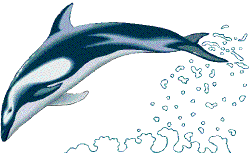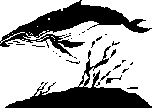

Goals:
1. Students will become familiar with searching the Greenpeace website for information that they want.
2. Students will gain an understanding of the history and importance of Greenpeace in order to strengthen their understanding of Arctic Adventure by Midas Dekkers.
Resources:
1. Greenpeace website at:
http://www.greenpeace.org/index.shtml
2. Greenpeace website that pertains to whales and whaling issues at:
http://www.greenpeace.org/whales/whaling.html
3. Dekkers, Midas. Arctic Adventure, Meulenhoff Informatief, 1982. ISBN 0-531-05704-6
Teacher Background:
All aspects of teacher background dealing with this subject can be found using the resources that are listed above.
Time: This lesson should take about three hours to complete. The students should be given at least 45 minutes in order to feel comfortable with the Internet site. Then the remaining time will be given for students to research the site and also to write out their reports.
Procedure:
Step 1- Students will be divided up into groups according to how many computers available are connected to the Internet.
Step 2- Give students the Greenpeace website (resource #1) and have the students explore the website for about twenty five minutes.
Step 3- Tell the students to look at the opening page of the website, have each group pick from one of these topics to explore in depth (whaling, nuclear, ocean dumping, atmosphere, and marine).
Step 4- Students then will look at each different link that is provided on the first page of the Greenpeace website. Students then will look at the website that they were given and will write down the key information. Students should focus on what this section of Greenpeac tries to accomplish? How Greenpeace attempts to accomplish their goals? What opposition does Greenpeace receive from other organizations or nations in this branch? How does this section of Greenpeace relate to whales? In what ways does Greenpeace suggest that the public could help in this conservation?
Step 5- Discuss with your students all of the information gathered on Greenpeace. Using the information from the class make a transparency from the class discussion. Then have groups make a visual (poster or collage) about the information that was gathered for their particular section of Greenpeace.
Step 6- Then tell your students to write a one page paper discussing a current event from their portion of the website. Have the students include their view on the issue.
Assessment:
Students will be assessed on this assignment by matching the criteria that is listed below.
The following three rubrics will be used to assess the Internet search:
4 points= All time spent searching the website is purposeful.
3 points= Most of the time spent searching the website is purposeful.
2 points= Some of the time spent searching the website is purposeful.
1 point= Little or no time spent searching the website is purposeful.
4 points= Students find quality information about their section of Greenpeace.
3 points= Students find some quality information about their section of Greenpeace.
2 points= Students find little quality information about their section of Greenpeace.
1 point= Students do not find any quality information about their section of Greenpeace.
3 points= Students write a coherent paper on current event
2 points= Students write a coherent paper that contains some spelling and grammatical errors.
1 point= Students fail to write a coherent paper because of the abundance of spelling and grammatical errors.
4 points= Worked well with the group all of the time.
3 points= Worked well with the group most of the time.
2 points= Worked well with the group some of the time.
1 point= Had many problems working cooperatively with the group.
Curricular Strands and Major Concepts:
Language Arts- Reading the book Arctic Adventure by Midas Dekkers and by using the informative web sites. Students also will be writing reports and practicing effective communication skills during group work.
Social Studies- Students will be learning about the history of Greenpeace and the importance of Greenpeace in our present day society.
Art- Students will be creating posters or collages about Greenpeace.
Possible Extensions:
1. Students could make a timeline of important dates and policies that Greenpeace has formed.
2. Students could make up a story about a fictitious Greenpeace expedition similar to the one that Menno and his older brother encounter in Arctic Adventure.
3. Students could e-mail Greenpeace to receive new information and upcoming events. Form found at http://www.greenpeace.org/comms-cgi-bin/mail/offices.cgi.

Back to Table of Contents
Back to Main Page